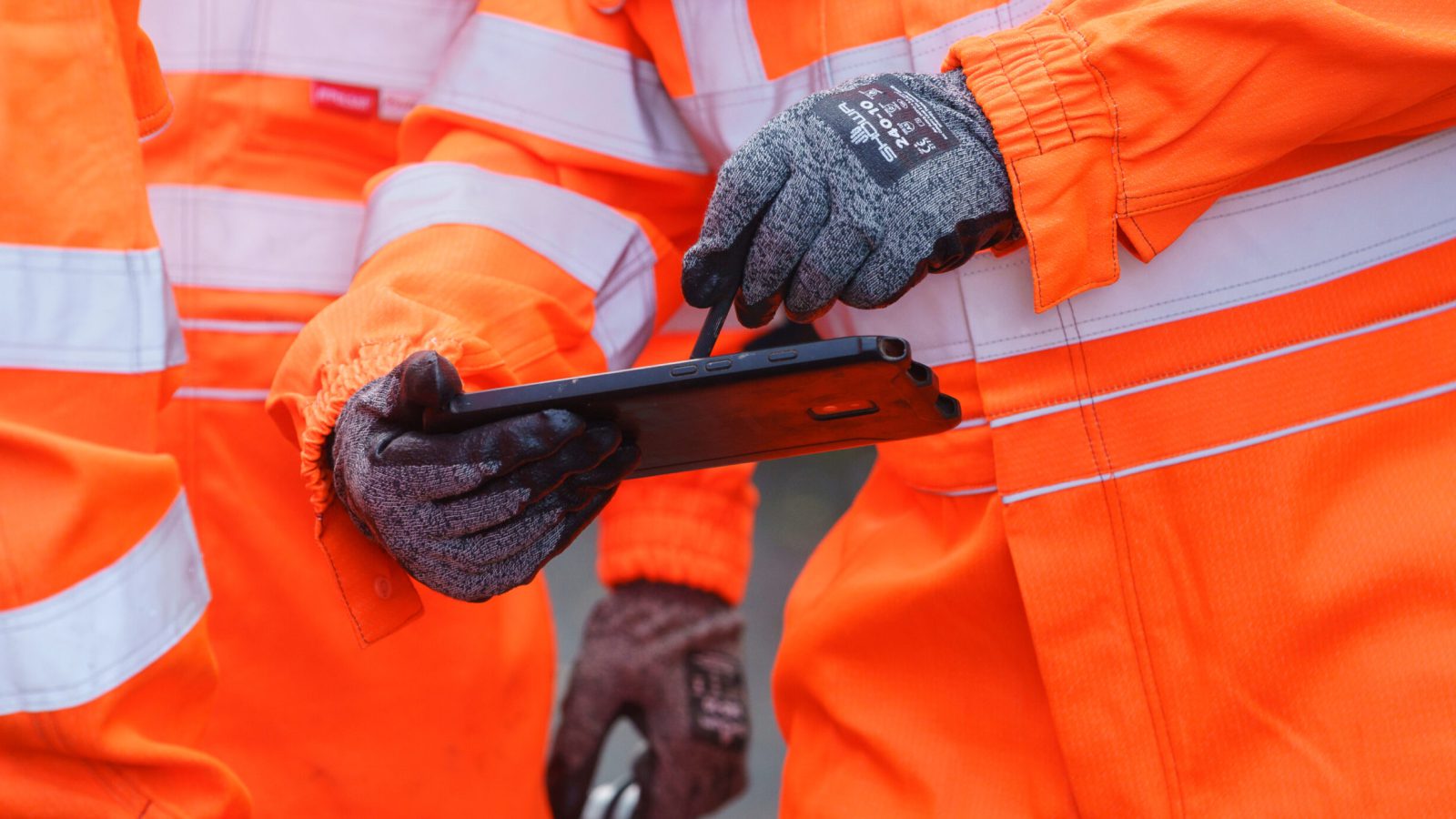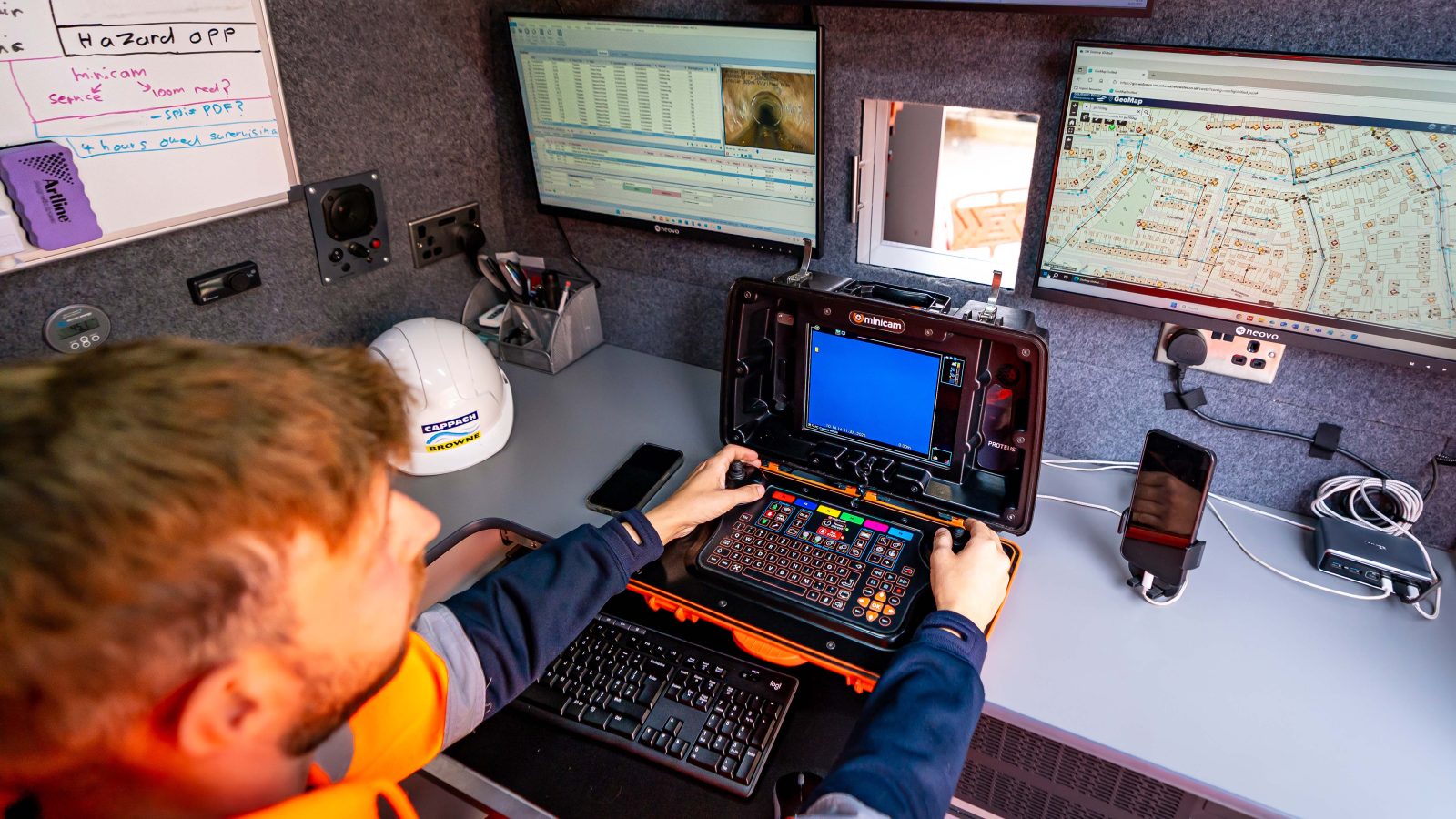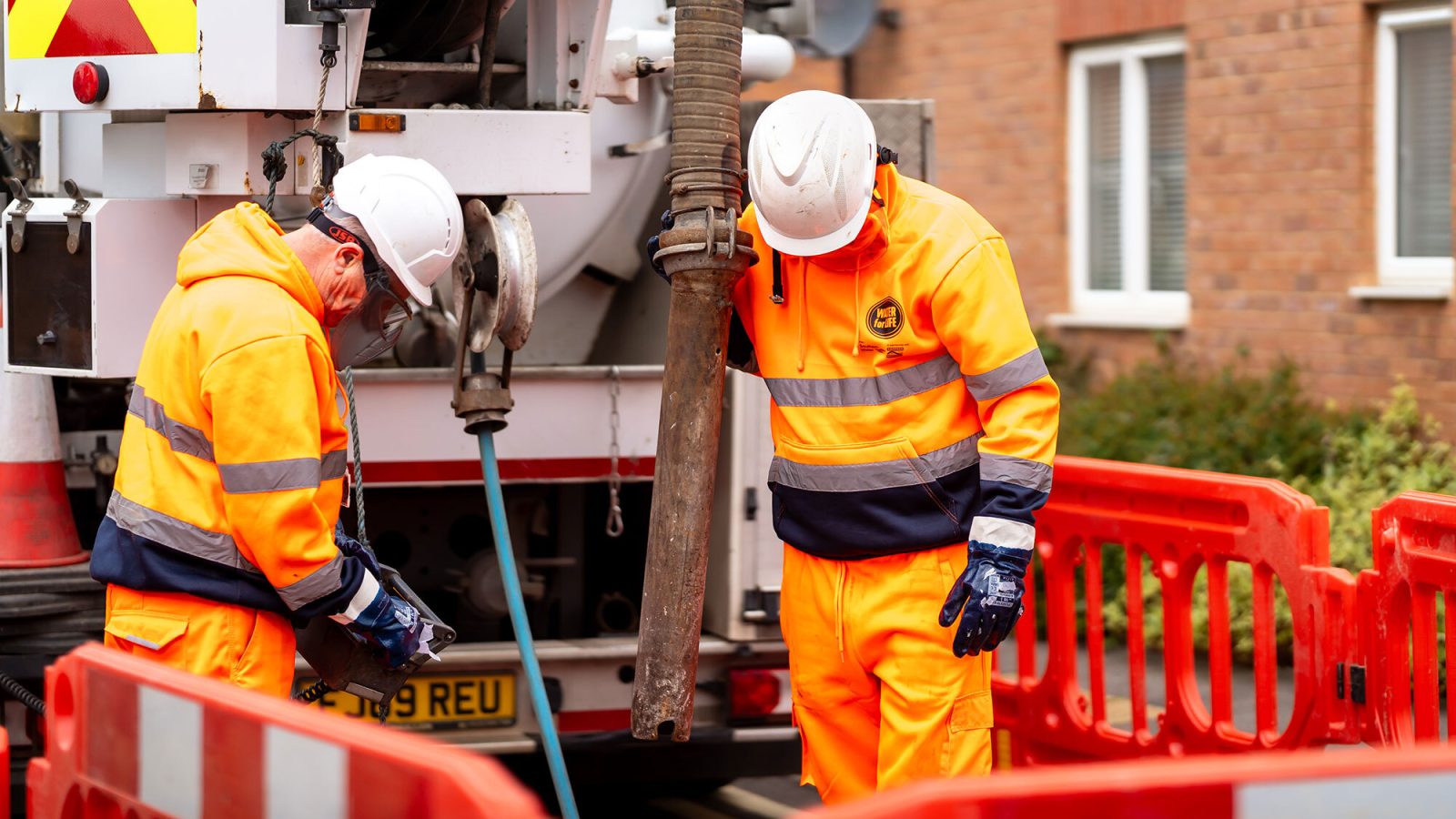Environment
We’re constantly looking at innovative ways to keep our impact on the climate to a minimum.
Scroll
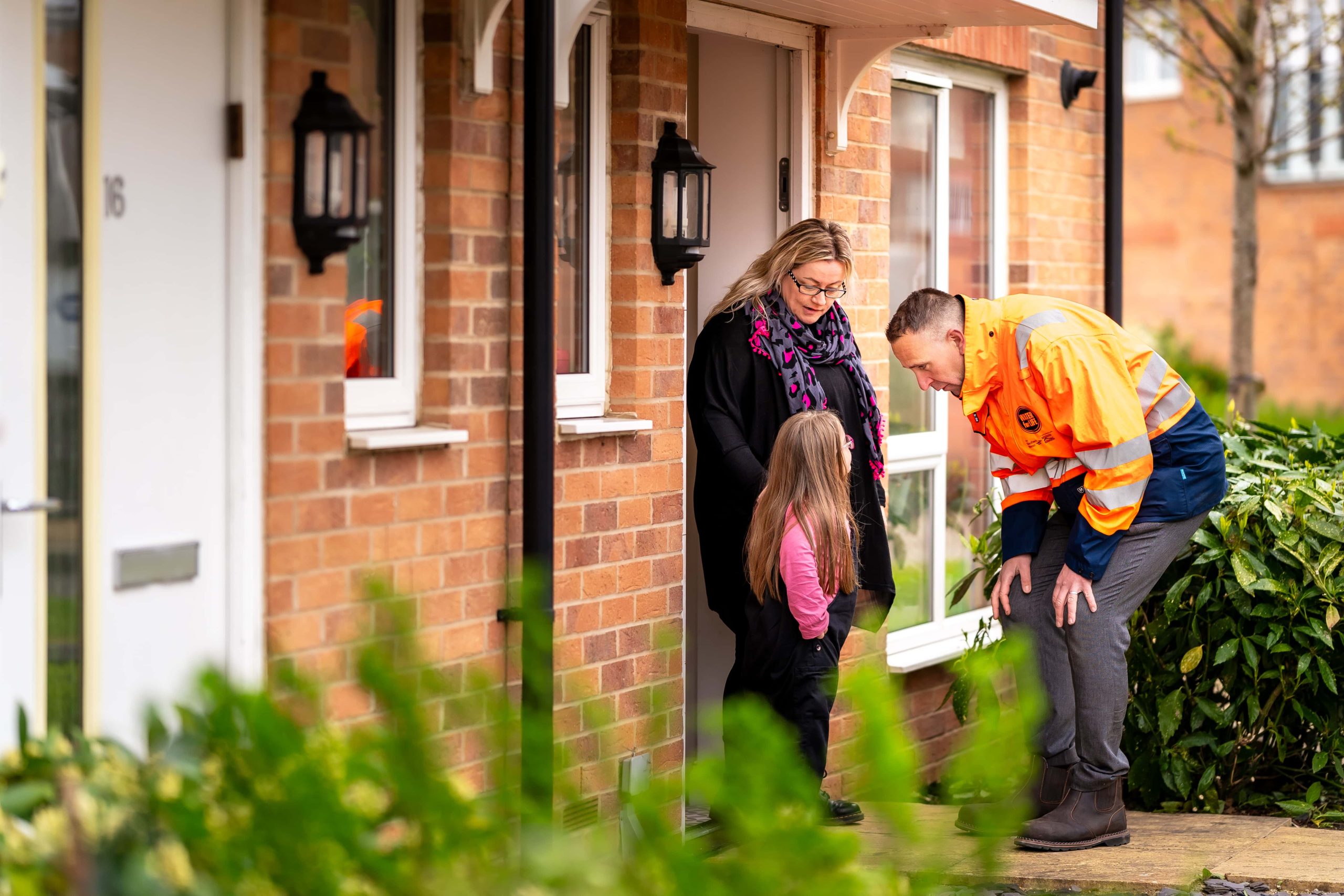
Introduction
At Cappagh Browne, we believe that innovation holds the key to decarbonising our operations. We have robust targets to decarbonise and reach net zero by 2050.
Our new vans are fitted with 310-watt solar panels to further reduce our carbon footprint on the way to reaching net zero. The solar panels provide power in the vans for the various everyday electronic devices our operatives use. We are currently working on enhancing this technology, enabling future solar panels to draw energy from streetlights as well as solar rays.
We are also trialling battery-powered equipment, such as LED Remote Stand Lighting and Disc cutters, reducing our reliance on fossil fuels. Our multi-functional recyclers enable our engineers to re-use water from jetting activity. This enables longer jetting capacity and reduces the frequency of refilling the unit. Our recyclers are also equipped with industry-leading telemetry, CCTV units and sewer chamber person-entry equipment. The multi-functionality of these units means a saving in time, cost, risk, and carbon footprint.
We make use of innovative no-dig technology such as, CIPP lining, horizontal directional drilling (HDD), guided auger boring (GAB) and flooded systems (Tubogel). These techniques help to minimise our impact on the environment, reducing the size of the excavation site, volumes of material to landfill, as well as less fossil-fuel powered plant and equipment.
Environment
We commit to reducing our environmental impact by…
1
/4
Reducing vehicle movements
Replacing fossil-fuel powered equipment with electric-powered where possible
Improving local biodiversity
Replanting Trees
Maximising no-dig technique
Reducing material landfill through our recycling schemes
Environment
We care about the environment, which is aided by the work we do.
Recycling Report for 2023-2024
Recycled
85.76
Percent
of the waste material removed and collected
Recovered
11.07
Percent
of recycled material to be converted for useful purposes
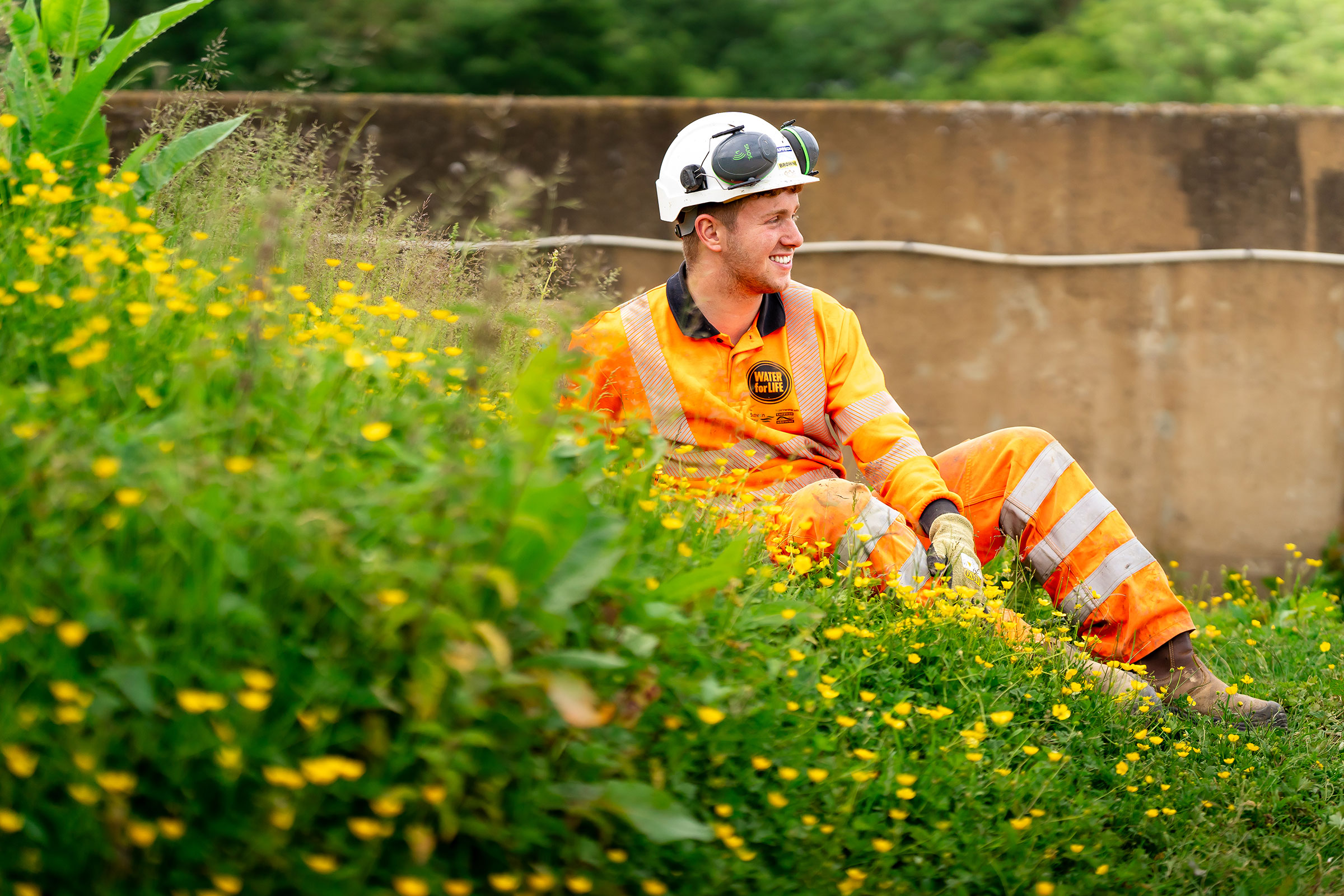
Reducing Waste
We are always looking at how we can reduce the amount of waste we produce – from our work sites to our offices.
Our partnership

Every CBUL yard and depot has segregated waste bins on site to ensure recyclable waste doesn’t end up in landfill. Our waste management is regularly monitored through our “Gogreen Portal”, which tracks the volumes of waste going into each waste stream. This allows us to make strategic operational changes to ensure maximum waste is recycled and removed from landfill.
In addition, excavated material is returned to the ground where possible to reduce soil erosion, transport of air-borne contaminants, ecosystem disturbance and offsite disposal. Where backfill is not possible, excess waste created from excavation projects is often recycled as aggregates.
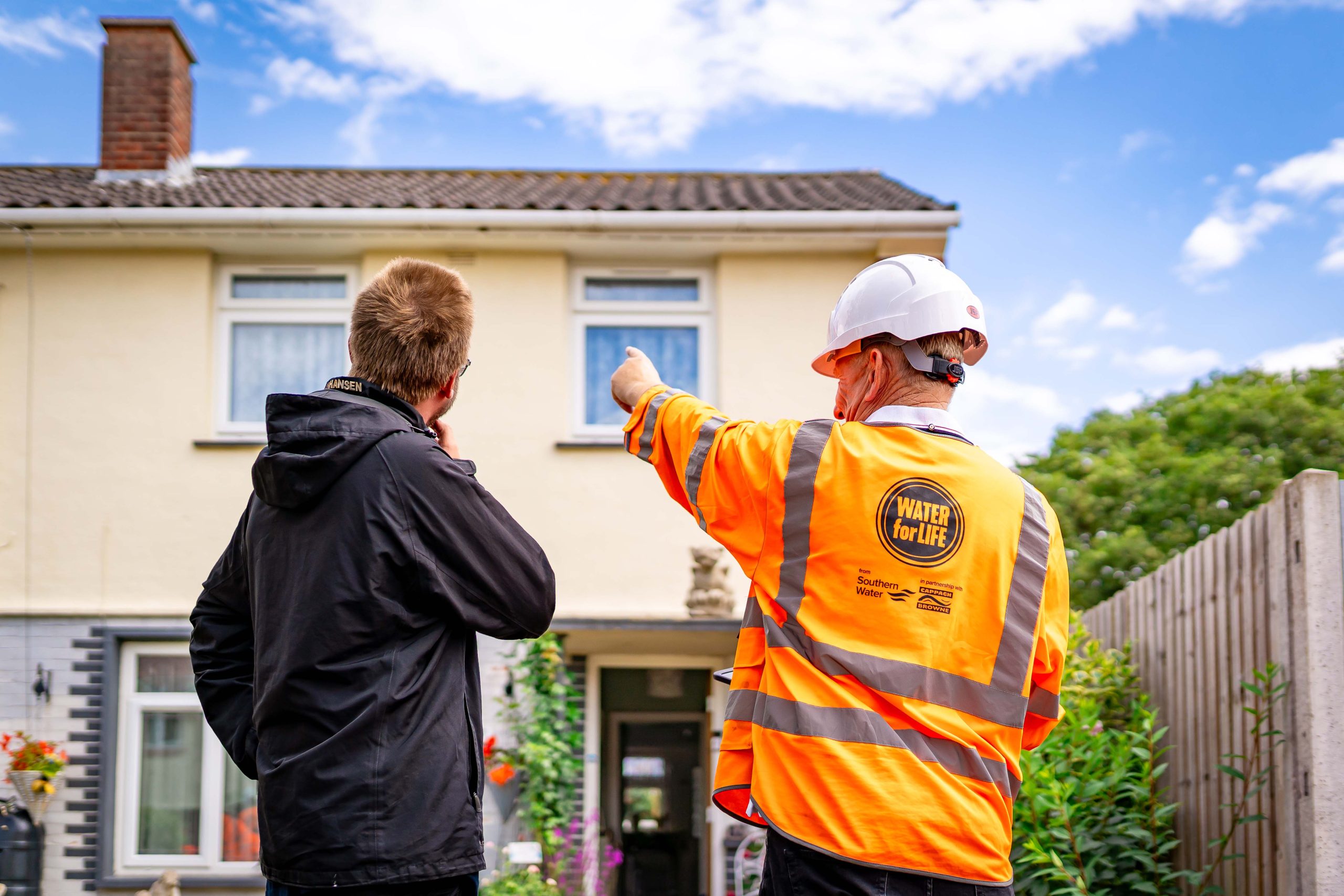
Carbon Footprint
At Cappagh Browne, we believe that innovation holds the key to decarbonising our operations. We have robust targets to decarbonise and reach net zero by 2050.
Our Strategy

We are also trialling battery-powered equipment, such as LED Remote Stand Lighting and Disc cutters, reducing our reliance on fossil fuels.
Our multi-functional recyclers enable our engineers to re-use water from jetting activity. This enables longer jetting capacity and reduces the frequency of refilling the unit. Our recyclers are also equipped with industry-leading telemetry, CCTV units and sewer chamber person-entry equipment. The multi-functionality of these units means a saving in time, cost, risk, and carbon footprint.
We make use of innovative no-dig technology such as, CIPP lining, horizontal directional drilling (HDD), guided auger boring (GAB) and flooded systems (Tubogel). These techniques help to minimise our impact on the environment, reducing the size of the excavation site, volumes of material to landfill, as well as less fossil-fuel powered plant and equipment.
Carbon Reduction Targets & Objectives

• 2024/2025: Appraise PAS 2060 to achieve carbon neutrality and develop a detailed implementation roadmap.
• By 2026/2027: Achieve a 20% reduction in travel-related carbon emissions compared to our 2022/2023 baseline.
• By 2028/2029: Achieve a 40% reduction in travel-related carbon emissions compared to our 2022/2023 baseline.
• By 2030/2032: Achieve a 60% reduction in travel-related carbon emissions compared to our 2022/2023 baseline.
Long-Term Goal (2050)
• Net Zero by 2050: Align long-term reduction targets with the Science Based Targets initiative (SBTi) to achieve net-zero carbon emissions by 2050.

Social Initiatives, Targets & Objectives
Our commitment to social responsibility is reflected in our ongoing initiatives aimed at fostering community engagement, promoting employee well-being, and ensuring diversity and inclusion within our workforce.
Community Engagement

Local Employment & Skills Development

Mental Health & Well-being

Diversity, Equity & Inclusion (DEI)

Some of the services we provide in action
1
/4
Updates
Latest news and insights
See all newsNews
People
26.02.2026
Colleague Spotlight: Maddy Matthews – Customer & Operations Project Coordinator
Find out more

Find out more

News
People
16.02.2026
Raising the Bar for 2026: Cappagh Browne Completes Stand Down Series Across the South
Find out more

Find out more

News
People
27.01.2026
Cappagh Browne Supports Future Talent at Chichester High School Careers Fair
Find out more

Find out more


